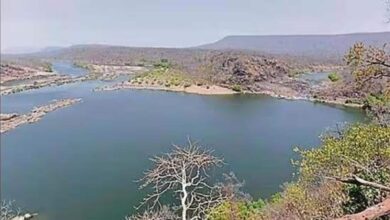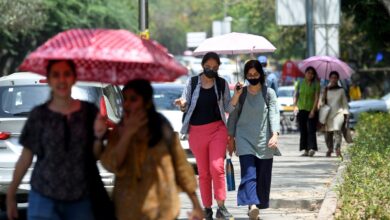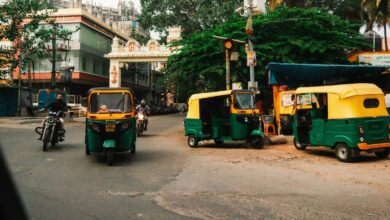Newly repaired roads turn to dust

BHOPAL: Road construction is a time-consuming and costly affair, as constructing one km of road in a city like Bhopal normally costs Rs 70 lakh to one crore and takes a fortnight to a month. Surprisingly, spells of three to four heavy rains during monsoon is often enough to wash away roads constructed with so much of funds and labour!
Experts, however, said that roads are not actually washed away but eaten up by the water. “Water and bitumen, which form the surface of roads are its enemies. If one stays, the other goes. In fact, all the elaborate exercise done in construction of roads primarily aims at one thing not allow the water to come in contact with the road. During monsoon, you can’t help but must ensure that water is drained off the road and waterlogging on roads must be checked but it doesn’t happen and roads turn to dust”, said Ashok Raijada, a contractor.
Retired PWD superintendent engineer V K Amar, while explaining the process of road construction, pointed out how the entire exercise zeroes down to keeping ground and surface water away from roads. “Soil for laying the roads is chosen after survey. Black cotton soil absorbs water and is never used. An embankment of 90cm height is created to ensure that groundwater, which might come up due to capillary action, does not reach the upper crest of the road,” he explained.
“All possible measures are taken to save the road from water but poor drainage system in the city leads to waterlogging and roads get destroyed. Nobody can refute corruption in departments of the state government and consequent compromise in the quality of construction, but waterlogging on roads is equally responsible for ruining roads during monsoon,” said a serving engineer in the PWD on the condition of anonymity.
Raijada said that while laying surface of the road, cambering work — elevation of middle part of the road — is of utmost importance. “Similarly, super elevation is created at turning points to let the water run off the road,” he said.
All the works departments of the state government be it PWD, rural engineering or any other have also made it mandatory for contractors to make roadside drains compulsory both in the urban and the rural areas, particularly if the roads are near human settlements. “Drainage becomes a greater problem in roads, which are near human settlements in the cities. That’s why roadside drainage is now compulsory for all new roads coming up”, said Peeyush Sharma, a contractor.
However, they all agree that repairing of roads that is carried out during monsoon is completely ad hoc. “If there is a big pothole on the road, they should dig up that area and reconstruct the road but we put some BT metal (black boulders) and asphalt the road. Even roller is not used in the hope that traffic on the road would make the road even, which doesn’t happen,” said a PWD engineer, who didn’t wish to be named.
The five-year mandatory maintenance clause in contracts as being done now is the only solution to keep roads smooth in addition to BMC taking effective steps to put the drainage system in order.






